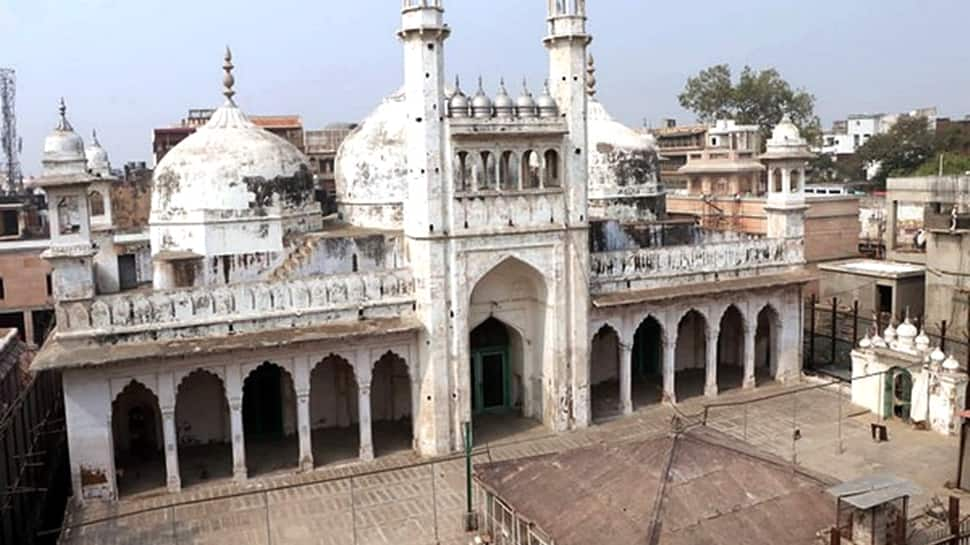 |
|
The recent statement made by Uttar Pradesh Chief Minister Yogi Adityanath regarding the Gyanvapi mosque has ignited a heated debate in the political landscape. During a public event, Yogi declared, “Gyanvapi is none other than Lord Vishwanath himself.” This statement, while seemingly straightforward, carries significant political implications, especially considering the ongoing legal battle surrounding the Gyanvapi complex. The controversy surrounding the statement lies in its timing and potential interpretation. With by-elections looming in Uttar Pradesh, Akhilesh Yadav, the leader of the opposition, has been actively campaigning using his ‘Progressive Democratic Alliance’ strategy to garner support. Many believe that Yogi’s statement is a direct response to Akhilesh’s political maneuverings, aimed at consolidating his own voter base and potentially diverting attention away from the opposition’s strategy. The statement, in essence, can be seen as a double-edged sword. On the one hand, it emphasizes unity and integrity under the banner of Gyanvapi, a site of immense religious significance for Hindus. This message has the potential to resonate with Yogi’s core voter base, particularly in the upcoming by-elections. On the other hand, the statement has been criticized for being provocative and potentially inflammatory, particularly by those who believe in the separation of religion and politics. The controversy surrounding Yogi’s statement has exposed the complex dynamics of Indian politics and the intricate interplay of religion, identity, and electoral strategies. The statement itself is likely to be a topic of continued debate and analysis in the lead-up to the Uttar Pradesh by-elections. Its impact on voter sentiment and the overall political landscape remains to be seen.
The statement also highlights the broader trend of religious rhetoric in Indian politics. With issues like the Ram Temple construction in Ayodhya already having a profound impact on national politics, the Gyanvapi controversy further underlines the importance of religion as a mobilizing factor. Yogi Adityanath, known for his strong Hindutva ideology, has frequently referenced Kashi and Mathura in his speeches, hinting at a broader agenda beyond Ayodhya. The statement on Gyanvapi seems to be a step in this direction, potentially signaling a shift in focus towards these locations. The reaction to Yogi’s statement has been varied. While Hindu religious leaders have rallied in support of his declaration, Muslim religious leaders have strongly opposed his remarks. This polarization underscores the deeply entrenched religious sentiments in India, making the Gyanvapi controversy a sensitive and potentially explosive issue. The statement has also ignited debate regarding the separation of religion and state. Critics argue that a Chief Minister should avoid making pronouncements on issues that are currently sub judice, especially when such statements could be perceived as biased or inflammatory. Ultimately, the statement made by Yogi Adityanath regarding the Gyanvapi mosque has raised important questions about political strategy, religious sentiments, and the role of religion in Indian society. Whether the statement proves to be a strategic masterstroke or a political misstep remains to be seen, but its impact on the upcoming by-elections and the broader political landscape is undeniable.
The Gyanvapi controversy is a complex issue with deep roots in India's history and cultural fabric. The ongoing legal proceedings, coupled with the political maneuverings surrounding the issue, have highlighted the sensitive nature of religious sites and their significance in the Indian political landscape. While the Gyanvapi dispute remains a point of contention, it is crucial to engage in respectful and constructive dialogue while acknowledging the different perspectives involved. As the by-elections in Uttar Pradesh approach, the Gyanvapi controversy is likely to remain a key point of discussion and a potential factor in the electoral outcome. Its impact on the broader political narrative in India is yet to be fully determined but is undoubtedly significant.
Source: Yogi Adityanath's Statement On Gyanvapi A Response To Akhilesh’s PDA Formula? DNA Decodes
